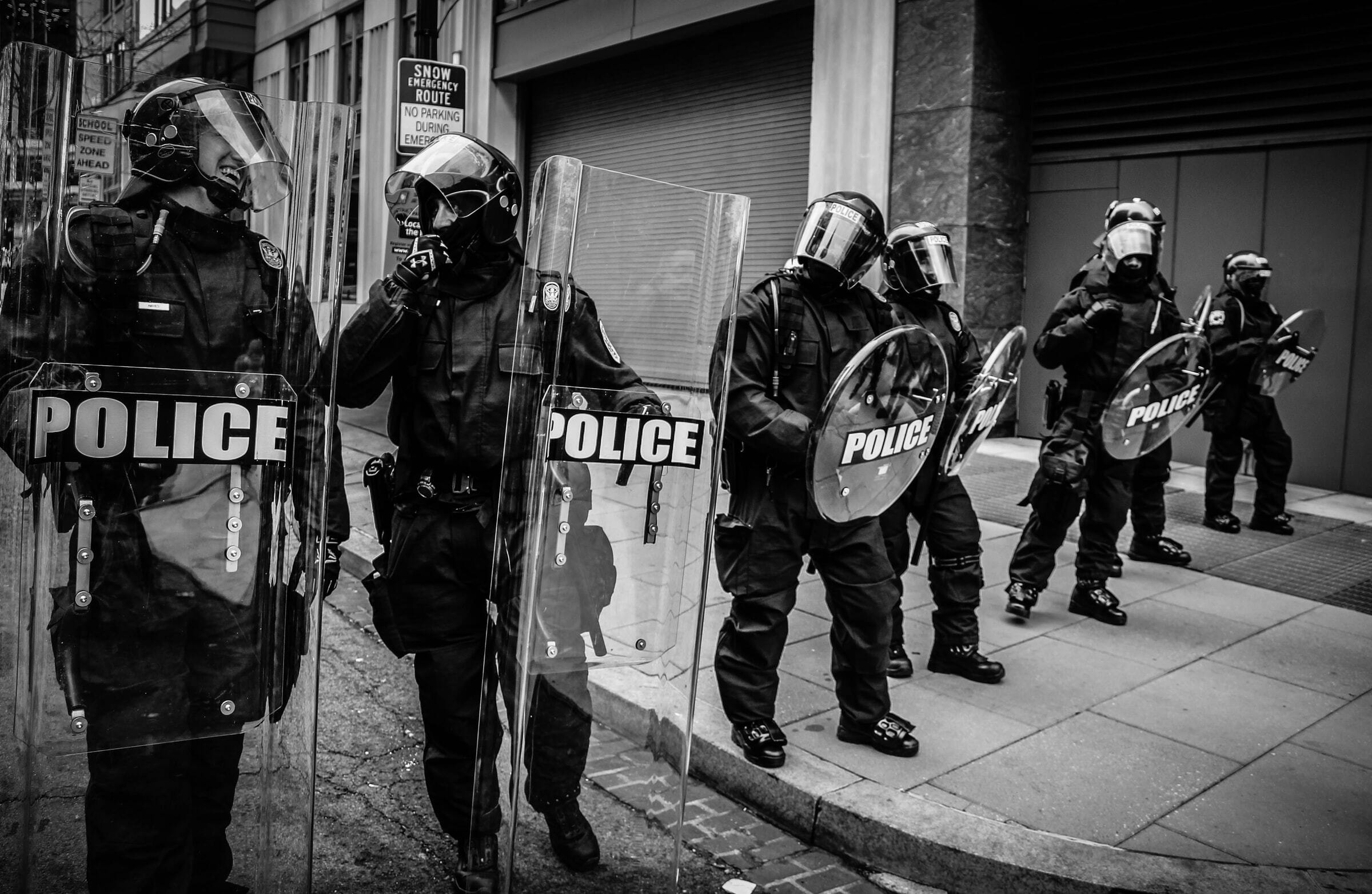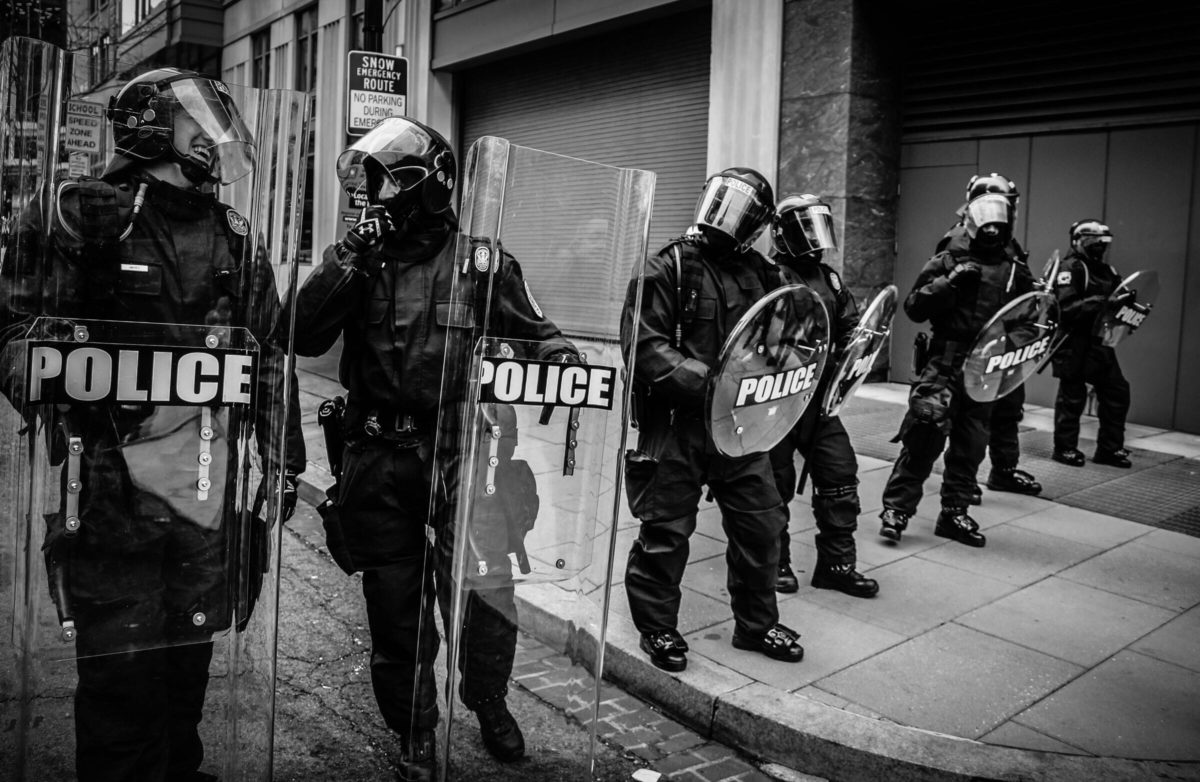Newsletter
The New Law Enforcement Spending Spree Is Already Underway
Billions of dollars of federal COVID relief aid are flowing to police, prisons, and jails in jurisdictions across the nation.


The New Law Enforcement Spending Spree Is Already Underway
by Nick Wing, The Appeal
Billions of dollars of federal COVID relief aid are flowing to police, prisons, and jails in jurisdictions across the nation. As Brian Dolinar reported for The Appeal last week, as much as $350 billion in American Rescue Plan Act funds could be sent to law enforcement “at a time when punitive responses to crime are facing an unprecedented crisis of legitimacy.”
It’s hard not to get mad about this. Less than two years ago, millions of people around the world took to the streets, enraged by another heinous police killing that once again revealed the racism at the rotten core of this institution. Police “reform” efforts in the preceding years did virtually nothing to slow the torrent of abuse by officers. Despite this clear pattern, U.S. officials continued to shower law enforcement with billions of dollars each year, without so much as asking whether this was an effective investment for public safety.
In 2020, George Floyd’s murder finally pushed many people over the edge, leading to more widespread criticism of the prevailing public safety paradigm: Why were we continuing to rely almost exclusively on punitive responses to crime and instability, while at the same time refusing to invest in resources to support people without relying on the criminal legal system?
But now, amid a wave of backlash to the Floyd uprising and subsequent “defund the police” movement, we appear to be in the early stages of another carceral spending spree.
In a speech last month in New York City, President Joe Biden encouraged communities to use ARPA funds “to keep our communities safe by hiring more police officers for community policing and paying police overtime.” Many major cities already have: Officials in Los Angeles reportedly directed more than $300 million in federal COVID aid to the LAPD in 2021 to cover ”payroll expenditures.” Washington D.C. reportedly spent $2.5 million in ARPA funds to hire more parking enforcement officers. Biden’s call to fund the police came as many cities had already expanded their policing budgets to new highs last year. This week, Biden proposed a 2023 budget that includes an additional $32.2 billion in federal funding to “put more officers on the beat.”
It’s important to note that for all of the controversy around the “defund” slogan, police overall were never defunded. Many Americans simply could not—or would not—challenge our overwhelming reliance on police and prisons. The country would surely descend into chaos if we took funding from police, they argued.
Yet somehow, at least according to many elected officials and media outlets, the nation has descended into chaos anyway. Faced with rising crime, the political establishment has now settled on a response that involves doubling down on the very same failed strategies that got us here. They have triggered another massive expansion of policing and incarceration using funds supposedly meant to help the nation recover from a devastating pandemic. Some have claimed this new spending is a necessary response to the defund movement—which, again, did not actually defund the police. If this is the justification, police apparently deserve more money just because people dared to suggest they should get less.
As Jacobin writer Branco Marcetic tweeted in response to The Appeal’s reporting, it is “profoundly dispiriting [that] the largest civil rights movement in U.S. history produced a policy response *against* its demands, and at the urging of a supposedly liberal president.”
There is one silver lining to all of this. As Dolinar reported, the federal funding in ARPA doesn’t necessarily have to go to law enforcement. In some jurisdictions, organizations have been able to secure pandemic relief aid to build up supportive services like mental health crisis response programs and behavioral health treatment. As Ras Stanford also wrote for The Appeal last week, groups like the Philly Homes 4 Youth Coalition are fighting to receive ARPA funding for issues like homelessness and affordable housing.
The most optimistic conclusion, as Dolinar puts it, is that these funds could present a “once-in-a-lifetime opportunity” for communities to “fundamentally realign their approach to public health” by “investing in infrastructure that supports and uplifts, rather than punishes and destabilizes.” While this offers some hope, it’s also clear that the forces of punishment and destabilization are much better positioned to grab hold of this money, thanks to their institutionalized power and support from politicians, law enforcement unions, and much of the mainstream U.S. media.
Over the next few months, we’re going to be keeping a close eye on how ARPA money is being spent across the country—and we want your help tracking it. Are officials in your city or town using COVID relief dollars to pad police budgets or building a new jail? Are organizations trying to use the money to launch new crisis response services or mental health programs? Reach out to us and let us know what you’re seeing at tips@theappeal.org.
And be sure to read Brian Dolinar’s story here.
In the news
Contact us at newsletter@theappeal.org so we can feature your work here.
Physician Rachael Bedard began working on Rikers Island in 2016. She cared for patients during the pandemic and advocated for hundreds to be released. But in January, she left her job at Rikers. “Doctoring in a broken place required a sustaining belief that the place would become less broken as a result of my efforts,” she wrote for The New Yorker. “I couldn’t sustain that belief any longer.” [Rachael Bedard / The New Yorker]
Ketanji Brown Jackson is the first public defender and the first Black woman to be nominated to the U.S. Supreme Court. At last week’s confirmation hearings, Republican lawmakers’ racist, absurd questioning dominated the headlines. So if you’d like to learn more about the likely next Supreme Court Justice, check out Vox’s piece on her legal career. [Fabiola Cineas / Vox]
In 2019, Colorado legislators passed a law granting people on parole the right to vote, but the State’s paperwork still hasn’t been updated, leading to confusion among those trying to register. Less than 30 percent of people who have been on parole since 2019 have registered to vote since the law was enacted, according to an analysis by The Marshall Project and The Colorado Sun. [Ilica Mahajan, Andrew Rodriguez Calderón, Alexandra Arriaga, and Weihua Li / The Marshall Project and The Colorado Sun]
Political prisoner Leonard Peltier has been imprisoned for more than 40 years for a crime he maintains he did not commit. Peltier and his supporters—including several members of Congress—are asking Biden to grant him clemency and release him from prison. In January, Peltier, who is 77 years old, contracted COVID-19. According to Rep. Raúl Grijalva, who supports clemency for Peltier, Peltier told him that when he had COVID he had “difficulties receiving adequate medical attention and gaining access to basic needs, like water.” Peltier has diabetes, hypertension, and is partially blind from a stroke. “They’re going to try and make me die here,” Peltier told NBC News in a telephone interview. “I have a last few years, and I got to fight.” [Erik Ortiz / NBC News]
HuffPost spoke with three families of those killed by police about their personal grief and stalled criminal justice reforms. “I still have trauma and I still have PTSD from the case,” Walter Scott’s brother, Anthony, told HuffPost. South Carolina police officer Michael Slager shot Walter Scott five times in the back. “When we stop protesting, stop doing things that we do to show them that we are upset, they think we will be OK and they go away again until the next killing happens,” Anthony told HuffPost. [Phillip Jackson / HuffPost]
That’s all for this week. Feel free to leave us some feedback, and if you want to support our official relaunch, please donate here. Until next time, the work continues.
